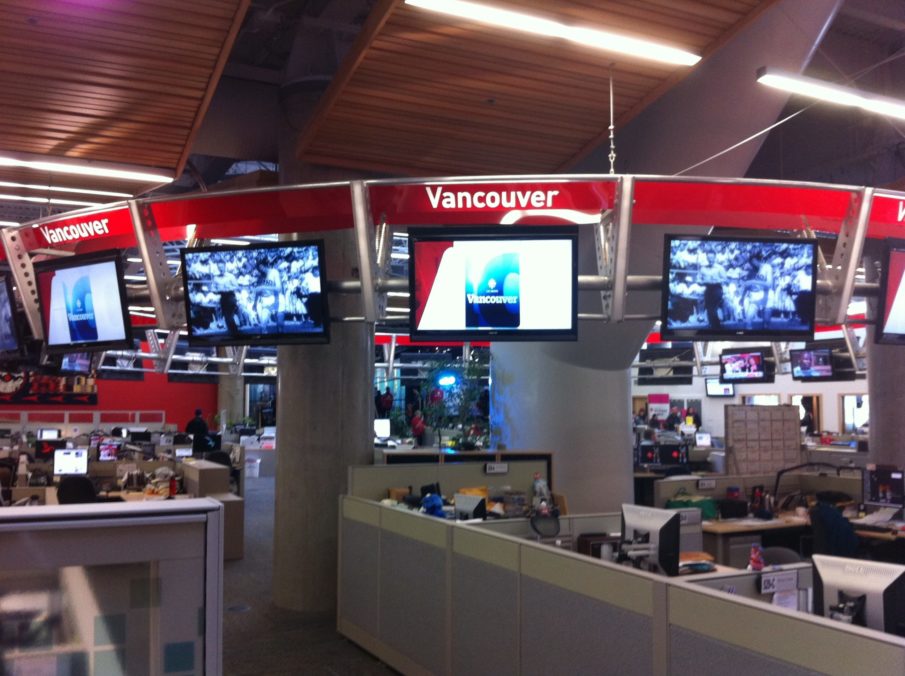
This article originally appeared in the Globe and Mail.
By Peter Menzies, June 29, 2022
The CBC walked away from its roots and role as a cherished public broadcaster last week when it won regulatory approval of a plan to sell its editorial credibility to advertisers.
That was the big take-away from the Canadian Radio-television and Telecommunications Commission’s (CRTC) long-awaited decision to renew CBC/Radio Canada’s licences for another five years. The five-member panel – after 18 months of debate that ended with a split decision and the departure of a dissenting vice chair – said CBC/Radio-Canada can proceed with its “Tandem” plan. Once considered gauche but now a common practice in private sector media, it involves the presentation of advertising as if it were genuine news. Some who use it undertake efforts to distinguish it from genuine news through large font labelling and unique typography, while others simply slip in a small “sponsored content” label.
What it does is allow the advertiser/purchaser of the space to “leverage” the credibility the media outlet has amassed through the quality of its journalism. The hope is that readers treat its paid-for message with the same level of trust, but critics say it blurs the line between truth and “truthy” and diminishes trust in the media outlet.
What privately owned and operated companies do is their business. But there are a lot of people – including a great many who work at the CBC – who don’t like this at all and believe that as a taxpayer-funded operation, what the CBC does is everybody’s business. The Mother Corp, as it is known, is Canada’s original public national broadcaster: first with radio, then TV and now delivering all of the above plus more over the internet.
Among the most vocal critics has been former CBC Radio executive Jeffrey Dvorkin, who led a rebellion in 2020 by hundreds of former and current employees against Tandem.
When CBC management first announced the idea, he described it as offensive to the values and integrity of CBC News and an insult to the audience. Other well known CBC personalities such as Peter Mansbridge, Linden MacIntyre and Adrienne Clarkson also had expressed “grave concerns.”
In recent years, while legacy media have had to trim newsroom resources owing to eyeballs shifting to social media and search engines, the CBC has expanded its presence online so that it has become the dominant media player in Canada. And it’s been able to do that not only owing to the volume and variety of its content but thanks to $1.3-billion (with more promised) in annual federal funding. So not only does it fulfill its coast-to-coast-to-coast mandate, it uses that subsidy to compete with private sector television, radio, print and online platforms for readers and increasingly scarce advertising dollars.
Private sector broadcasters have complained for years about having to pay taxes that the federal government then uses to subsidize the CBC to compete with them. Now newspapers have joined the queue.
In the CRTC’s January, 2021, licensing hearing, many spoke against the Tandem project and only two submissions (one being the CBC’s) supported it. The CRTC decided to give it the green light despite the opposition. It then issued a long list of non-binding “expectations,” which amount to little more than regulatory nagging. And it did so while, much to the alarm of the Canadian Media Guild and others, dropping conditions of licence regarding the need to maintain local news operations in urban markets. More money, less obligation.
What the CRTC has done with this decision is destroy any lingering romantic thoughts of the CBC as a public broadcaster. Apart from Radio One, it is now a full-blown Frankenstreamer crashing its way through a fragile national media ecosystem.
It has fulfilled the vision of itself that it presented at a CRTC hearing in which I participated in 2009. There, it described itself not as a public broadcaster but as – of all things – a publicly funded commercial broadcaster.
Up until now, I’ve believed that those calling for the defunding of the CBC were wrong – that Canada needs a good public national broadcaster in the spirit of advertising-free Radio One. But this latest decision makes it clear the CBC doesn’t want to be what so many of us want it to be. And the CRTC doesn’t care that it doesn’t.
If what the CBC really wants to be is a commercial entity, there is no longer an argument in favour of publicly funding it.
Peter Menzies is a senior fellow at the Macdonald-Laurier Institute. Previously he was vice-chair of the CRTC.





